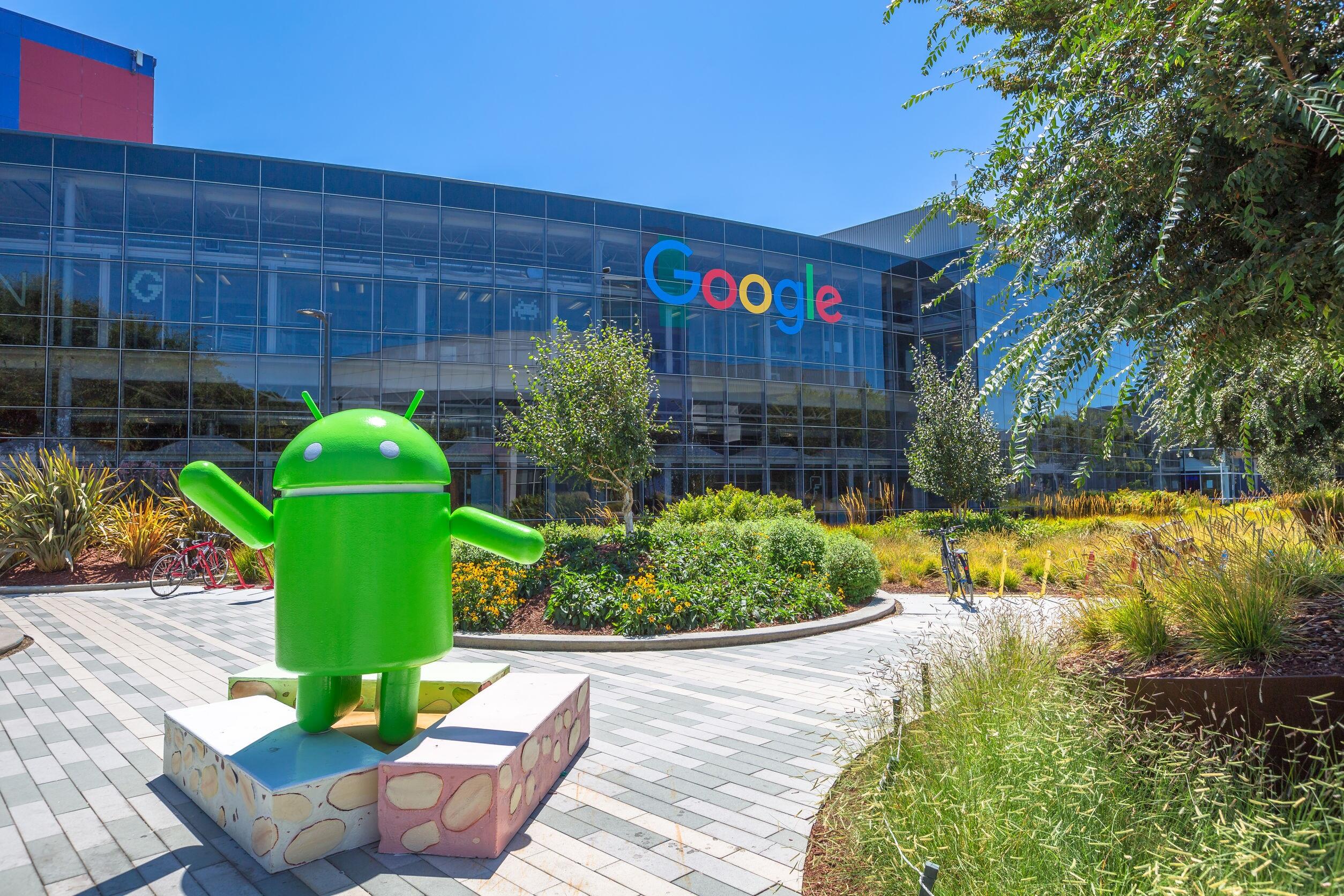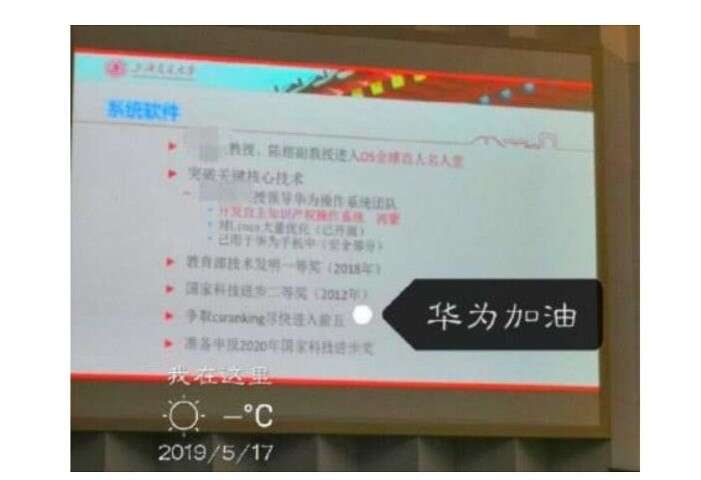Huawei has a Contingency Plan
Article By : Demi Xia,

Google ceasing to license Android will have little impact on Huawei's domestic business, but it will affect its phone users and future sales overseas
Alphabet, Google's parent company, has suspended any business with Huawei that requires the transfer of hardware, software and technical services, complying with Trump Administration requirements. That includes Android (its smartphone operating system), though not products publicly available via open source licensing. Google also will no longer offer tech support and collaboration to Huawei for Android and Google services.
When Google China was asked about how it will proceed, it responded via email that "we are complying with the order and reviewing the implications".
Google's move may affect Huawei's overseas smartphone business, as it will lose immediate access to future Android updates, and its next-generation Android smartphones will have to go without popular services such as Google Play Store, Gmail and YouTube.
"Huawei will only be able to use the public version of Android and will not be able to get access to proprietary apps and services from Google," the source added.
Recommended
Huawei Catches a Break with TSMC
This article was translated from the original published by EDN China: 谷歌落井下石限制华为用安卓?华为说:我有B计划!
Huawei will continue to have access to the version of the Android operating system available through the open source license (known as the Android Open Source Project, or AOSP), which is free to anyone who wishes to use it. According to data from Google, there are about 2.5 billion active Android devices worldwide.
Google will cut off Huawei from future access and tech support and cooperation on its proprietary apps and services, the spokesman confirmed.
How will Google's move impact China’s domestic phone makers?
This Google ban involves a variety of businesses, but neither Google nor Huawei have clarified who else might be affected.
What the ban might cover
Android itself is an open source project. As such, Huawei is not excluded from participating, even while it is limited to the use of the operating system. The ban may involve these aspects:

-
Huawei can no longer license the Google Mobile Service (GMS). These include services such as Maps, Gmail and Google Drive, which Google never licenses to domestic phone manufacturers and are not available for domestic users. These services are what overseas Huawei users have come to expect on their Android devices and customers will feel restrictions on their use if Google pulls Huawei’s GMS license worldwide.
-
Huawei's access to Android will be limited. Under Google's AOSP, any phone manufacturers can apply for use of the open source version of Android. It will lose the ability to collaborate with Google on Android however, a significant impairment. Android phone makers around the world cooperate with Google beyond simple open source licensing. For example, they can optimize and adapt the system before the new version is released, and can even influence Android’s official functions. Getting early access to the latest version of Android, and the ability to influence the Android ecosystem allows them to differentiate their products from competitors in terms of system function and experience. As for Huawei, its head of consumer business has mentioned the company’s close cooperation with Google's Android team in many interviews.
-
Huawei's cooperation with Google has not been limited to being a customer. It once acted as an OEM for the Pixel series of Android phones defined by Google. Any possible partnering in that manner will certainly be suspended as part of the ban.
According to IDC, Huawei now leads the smartphone market in Europe and is expected to become the largest smartphone maker by the end of the year. In the first quarter of 2019, Huawei ranked first in 9 European countries by market share. However, with Google no longer supplying support and services, Huawei’s position in other markets may change as soon as the next quarter.
The ban will also represent a heavy blow to other Chinese handset makers, who currently use Android and are striving to enter overseas markets.
Android consists of three parts, one being AOSP, which provides a framework and thus must be open source. It is simply the native Android compiled by Google's official code.
At present, phone manufacturers basically adopt the customized version of Android, that is to say, targeted optimization will be made to the Android system according to domestic software use. For example, the blocklisting and other features addressing domestic advertising and telephone harassment are not specially developed for China in the native system, which requires phone makers to do it by themselves.
In addition to Huawei, domestic phone manufacturers all make in-depth customization and optimization for their Android-based OS. So far, the mainstream customized systems in China include Huawei's EMUI, OPPO's Color OS, Vivo's Funtouch OS, Xiaomi's MIUI, Lenovo's VIBE UI, etc.
Huawei's Contingency/ “plan B” OS
For the moment, Google’s move will have little impact on Huawei's domestic phone customers, but will affect its phones users and futures sales in overseas market, a market that has already become a major driving force for the growth of the company's phone shipments. Meanwhile, apart from Huawei, all domestic android phone makers that have entered overseas markets are likely to be affected to varying degrees.
According to media reports back in March, Richard Yu, head of Huawei's mobile business, said the company has developed its own operating system for smartphones and computers in case US tech giants no longer supply existing systems to it.
“We have prepared our own operating system. Should it ever happen that we can no longer use these systems [Android], we would start the plan B,” Yu said.
"Huawei does have a backup operating system, but will only use it when necessary. To be honest, we don't want to use it,” the Huawei spokesman said on Thursday, "we fully support our partners' operating systems, we love them, and our customers love them. Android and Windows will remain our top choices."
The history of Huawei's mobile operating system
On May 19, a netizen exposed on Sina Weibo (a site that hosts blogs) that Huawei's self-developed operating system was named "Hongmeng" and has already been used in Huawei phones (to support security features).

“Hongmeng” was mentioned
in a university presentation
The PPT page from Shanghai Jiao Tong University indicates a professor there is leading the Huawei operating system team to develop the company's proprietary operating system, Hongmeng. The operating system has been heavily optimized for Linux (open source) and has been used in Huawei phones (to support security). The original post has been deleted. ["Hongmeng" is a reference from Chinese mythology to the beginning of a new era. -ed]
A comment from someone identified only by their online user ID (Chaowenjun 5776), apparently speaking for the University, said the slide refers only to faculty results, and does not refer to Huawei-specific content. The person posting this comment asked that Huawei executives not be questioned about the information in the slide; suggesting that confidential information should remain confidential. Furthermore, “Hongmeng” might not end up being the official name of the OS. This person went on to say that other information disclosed by the department has nothing to do with Huawei.
Summary
Google took the lead in responding to the Trump Administration decision to stop business and service exchanges with Huawei, making it the first US major company in this respect. This, however, is just a microcosm of the US-China trade war. Apart from Huawei, Chinese mobile phone manufacturers are all expanding into overseas markets and will inevitably face an unprecedented test. From the chip battle, to the supply failure of core components, and to the Google Android ban, it can be seen that Chinese phone manufacturers are still subject to overseas tech giants in terms of core technologies like chips and systems, and must make qualitative breakthroughs on their own.
Google's suspension of future Android updates will also make handset makers aware of the need to find alternatives to Android to avoid relying too heavily on it.
Addendum
A separate report from EDN China filed subsequent to the article above revealed that on May 24 Huawei submitted several trademark applications to the European Union (EU) intellectual property office, including one for a self-developed operating system called "Ark OS."
According to the EU intellectual property office (EUIPO), Huawei also submitted trademark registrations for "Huawei Ark OS", "Huawei Ark", "Huawei Ark Compiler", "Ark" and "Ark OS".
The reference is reportedly to Noah's Ark. Some analysts believe that "Ark" will be the international version of the "hongmeng" operating system.
Subscribe to Newsletter
Test Qr code text s ss


